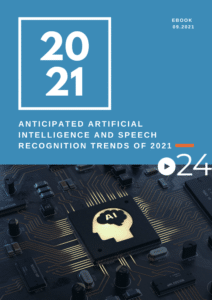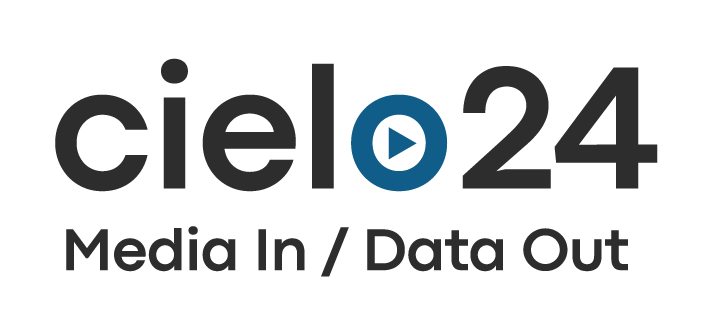New Media Consortium and EDUCAUSE Learning Initiative's Report on Technology Trends in Education The New…

Artificial Intelligence Trends of 2021
Artificial intelligence is a field that combines computer science with datasets to enable problem-solving. This may take the form of AI algorithms that are utilized to predict or classify data. According to a study, around 3/4ths of devices used currently have artificial intelligence built into them. This ranges from a litany of small devices to recommendations on streaming services and products such as Amazon’s Alexa. However, 2021 has seen new and exciting artificial intelligence trends take hold.

As scientists progress with AI, there have been some new developments and improvements that have taken place in this field. Much of this acceleration can be attributed to the COVID-19 pandemic and the accompanying digitalization of activity that has grown exponentially due to the circumstances. Thus, this year has seen a great number of artificial intelligence trends and innovations.
For more information on AI and innovative Speech Recognition trends, take a look at our Anticipated Artificial Intelligence and Speech Recognition Trends of 2021 eBook.
Conversational Artificial Intelligence Trends
Conversational artificial intelligence includes the likes of virtual customer service, personal assistants, and chatbots. As these use cases become more mainstream in business applications, organizations hope to use this technology to optimize their business operations.
This artificial intelligence trend includes the personalization of customer service and interactions is a critical component that businesses have begun to implement. Tailoring a certain interaction with a customer can mean the difference between a successful one that creates a long-term relationship and a distasteful one that limits the potential of that customer.
Thus, as conversational AI takes hold, there are some statistics that support this new development in 2021 and into future years:
- AI will support 95% of customer interactions by 2025.
- The usage of voice assistants will increase threefold from 2.5 billion in 2018 to 8 billion in 2023.
- Approximately 80% of businesses will use some version of a chatbot system by the end of 2021.
Ethical AI
Ethical artificial intelligence is an emerging development in 2021. As the world becomes more digital, the use of artificial intelligence has grown exponentially. However, the ethical implications of AI have not been as adeptly considered or measured. AI ethics help determine right from wrong using a set of rules and decision paths that influences the AI’s behavior. A company that is unable to successfully implement ethical AI may be vulnerable to regulatory, legal, and reputational risks.
In order to successfully and ethically utilize AI in any environment, a business or organization must consider three integral components. They must consider impact, justice, and autonomy.
- Impact: The risks and benefits of using AI must be weighed in order to determine the moral quality of the AI. This will depend on the consequences of the technology and how it affects people.
- Justice: In any case, people must be treated fairly. This extends to fairness in procedures and distribution that promote equitable outcomes and treatment.
- Autonomy: Though AI may be considered to be extremely intelligent, people must be able to make their own decisions without a manipulative or coercing force. To accomplish this, a business or organization must explain how to use and when to trust AI as well as giving people the choice to override or adjust the AI when necessary.
Fusion of AI and the Internet of Things
The fusion of artificial intelligence and the Internet of Things (IoT) produces “intelligent decision-making, customer delight, accurate prediction, identification of cost savings, and increased operational efficiency.” IoT refers to the network of “things” that are embedded with technologies that allow them to connect and exchange information and data using the internet. A common example of this would be a “smart home” that uses lights, thermostats, security, and other appliances compiled into a network that can be controlled by the user.
This merger between AI and IoT can provide many unique solutions and advantages that businesses can benefit from. With that being said, it is clear that AI and IoT have become major targets for investment. Business Insider predicts that by 2025, companies may invest up to $15 trillion in IoT. And according to the McKinsey Global Institute, the potential economic impact of IoT will extend from $4 trillion to $11 trillion by 2025.
Cybersecurity: Artificial Intelligence Trends
AI in cybersecurity is a major development in 2021. AI systems have become a critical tool used to fix system vulnerabilities and loopholes. About 69% of organizations believe adopting AI is a necessary step to respond to cyber threats and attacks effectively. As business and activity shift online, companies have become overwhelmed with possible cybersecurity threats. Thus, it is essential that companies consider AI’s effectiveness and invest in their “defenses.”
AI can play a vital role in certain aspects of cybersecurity. The most common uses can be broken down into three categories:
- Threat Hunting: Behavior analysis is a significant aspect of uncovering and identifying possible and imminent threats to an organization’s cybersecurity.
- Network Security: AI can lend information to understand how network environments work. It can also assist in cutting down time spent considering the appropriate workload for a given application.
- Managing Vulnerabilities: Tools such as user and event behavior analytics help organizations detect anomalies within their servers and can even analyze a user’s behavior prior to a cyberattack taking place. AI simplifies the vulnerability management process that organizations frequently face.
Quantum AI
Quantum artificial intelligence is the use of quantum computing to develop algorithms that significantly improve computational tasks and efficiency. Many companies have extensively invested in quantum research and development. Quantum AI can help organizations solve a litany of computational issues that range from finance, logistics, cloud security, and supply chain management. Though relatively far from practical applications, the worldwide enterprise quantum market will increase to $5.85 billion by 2025.
Artificial Intelligence Trends Conclusion
The growth of artificial intelligence in the last few years has been exponential. With new and innovative use cases being implemented, AI is becoming ingrained in our daily lives through the plethora of devices we use. Nevertheless, 2021 has seen a number of intriguing trends take hold and dominate this technology. As AI becomes more widespread and adopted as a mainstream technology, it is essential that organizations find strategies that include it within their business processes and/or customer relationships. Don’t fall behind! Take advantage of these trends and implement initiatives that utilize this technology to stay ahead of the curve.
cielo24 provides accessibility solutions – Captions, Transcripts, Audio Description
 Using our own robust AI machine and human quality control, we offer a full suite of accessibility solutions. Sign up for the Self Serve web app where human-verified transcriptions and captions start at less than $1/minute. Contact us online to get started!
Using our own robust AI machine and human quality control, we offer a full suite of accessibility solutions. Sign up for the Self Serve web app where human-verified transcriptions and captions start at less than $1/minute. Contact us online to get started!
Looking for Audio Description? Get started with WCAG 2.1 AA compliant Audio Description product. cielo24’s new Audio Description solution brings an improved video experience to people with low vision, vision impairment, and blindness. Give it a try now >>



